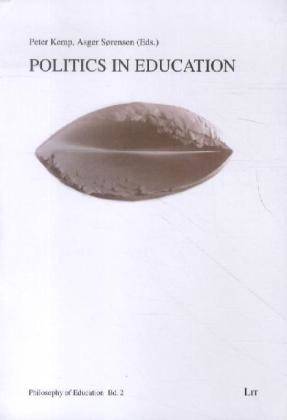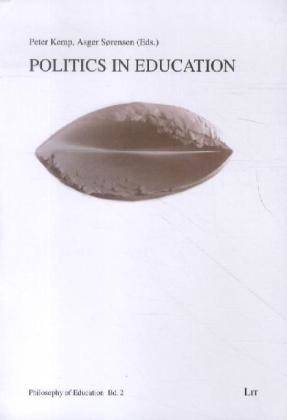
- Afhalen na 1 uur in een winkel met voorraad
- Gratis thuislevering in België vanaf € 30
- Ruim aanbod met 7 miljoen producten
- Afhalen na 1 uur in een winkel met voorraad
- Gratis thuislevering in België vanaf € 30
- Ruim aanbod met 7 miljoen producten
Zoeken
Omschrijving
There is no education, which can avoid being political. Still, the question is in which sense education is political, and if all education must be politics, or, if not, to what extent politics must be made the explicit telos of the formation and upbringing, and how the relation might be between the principles needed for education and those of the political sphere.
Today, after the successive collapses of the modern models of the good society, first realised socialism and then neo-liberal market society, the question is what the standards should be for education and especially what the relation should be between these standards and politics. Do we for instance have to raise human beings to become citizens of a civic republic, a world society or a league of nations? Can education limit itself to local concerns or must it transcend the limits to become international, transnational or even global? Should we educate to a global social democracy?
Today, after the successive collapses of the modern models of the good society, first realised socialism and then neo-liberal market society, the question is what the standards should be for education and especially what the relation should be between these standards and politics. Do we for instance have to raise human beings to become citizens of a civic republic, a world society or a league of nations? Can education limit itself to local concerns or must it transcend the limits to become international, transnational or even global? Should we educate to a global social democracy?
Specificaties
Betrokkenen
- Uitgeverij:
Inhoud
- Aantal bladzijden:
- 224
- Taal:
- Engels
- Reeks:
- Reeksnummer:
- nr. 2
Eigenschappen
- Productcode (EAN):
- 9783643902535
- Uitvoering:
- Paperback
- Afmetingen:
- 157 mm x 233 mm
- Gewicht:
- 414 g

Alleen bij Standaard Boekhandel
+ 49 punten op je klantenkaart van Standaard Boekhandel
Beoordelingen
We publiceren alleen reviews die voldoen aan de voorwaarden voor reviews. Bekijk onze voorwaarden voor reviews.










